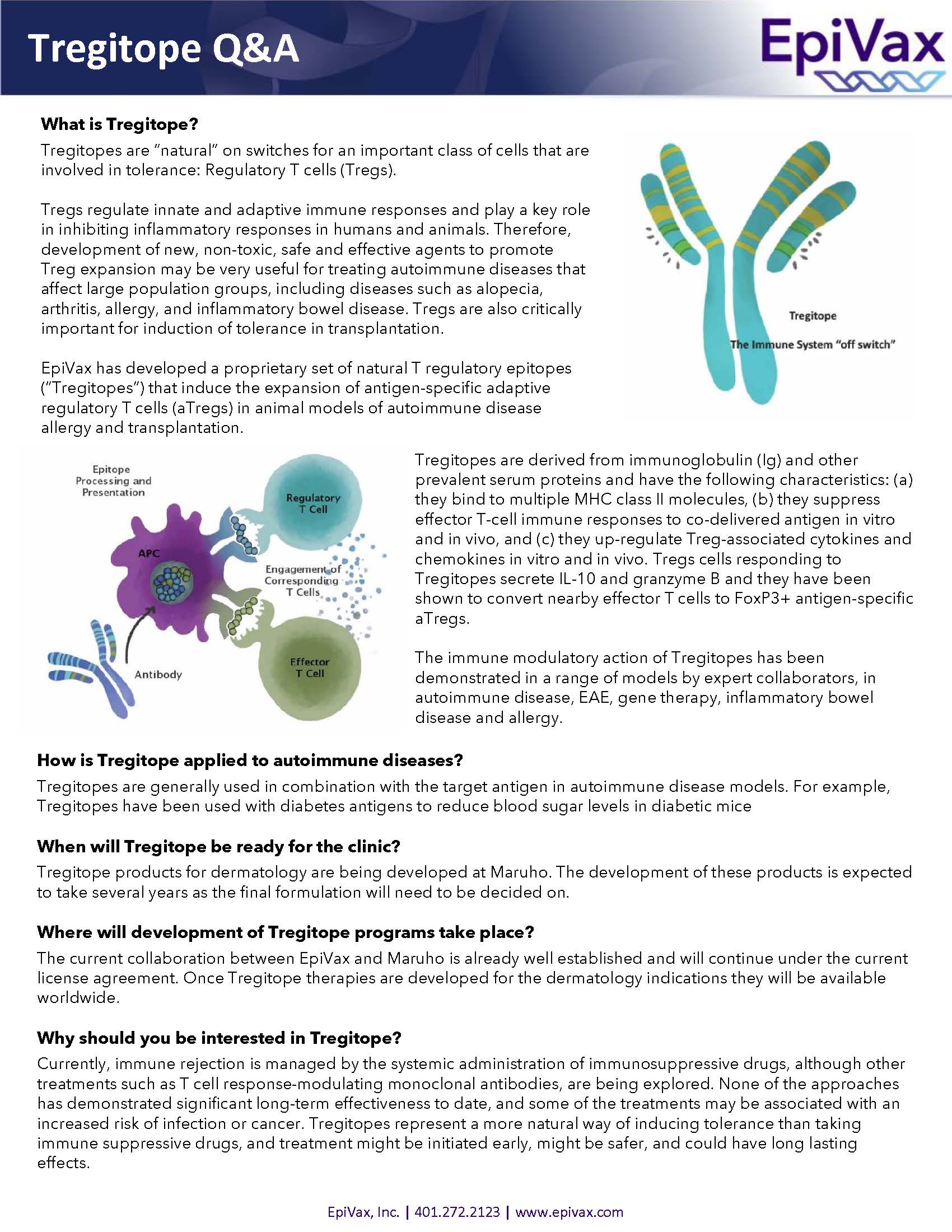Tregitope: Immunomodulation Power Tool
Tregitopes, discovered by Anne De Groot and Bill Martin at EpiVax, are linear sequences of amino acids contained within the framework of monoclonal antibodies and immunoglobulin G that activate natural regulatory T cells. Since their discovery, EpiVax has compiled substantial evidence for the application of Tregitope to auto-immune, auto-inflammatory and allergic conditions. By selectively activating natural regulatory T cells, Tregitopes can dampen unwanted immune responses in a manner that is safe, local and antigen specific.
A detailed explanation of Tregitopes is provided below. Please see the following links for more information:
Tregitope Applications
Tregitope Publications
Tregitope Posters
Tregitopes are found to be highly conserved in both the Fc and Fab regions of human IgG antibodies. They exhibit high affinity binding to multiple HLA class II alleles, and a combination of Tregitopes can cover over 90% of the population. Homologs of identified human Tregitopes have been found in mice, rabbits and cynomolgus monkeys. In vitro and in vivo experiments demonstrate that the administration of Tregitopes induces the activation of natural regulatory T cells (CD4+/CD25+/FoxP3+). The activation of these cells results in suppression of the immune response. The original Tregitope finding was published in the journal Blood in 2008.
Tregitopes that are co-administered with antigenic molecules such as ovalbumin and allergens not only lead to a suppression of effector cytokine responses and effector T cell proliferation, but also induce expansion of antigen specific regulatory T cells. These and other experiments have shown that the regulatory effect of Tregitopes is antigen-specific and would not cause global immune suppression.
Preliminary studies carried out by EpiVax and collaborators indicate that Tregitopes may be useful for inducing tolerance to protein drugs, transplants, and blood replacement therapies, as well as for the treatment of autoimmune diseases and allergies. EpiVax also believes that Tregitopes may, in part, explain the mechanism of action in intravenous immunoglobulin G (IVIG), widely utilized as an autoimmune treatment, and that Tregitope formulation may serve as a synthetic alternative to IVIG. NIH SBIR grants coupled with private foundation funds have brought total pre-clinical funding for Tregitopes to more than $3.4M in the past 4 years.
![]()

